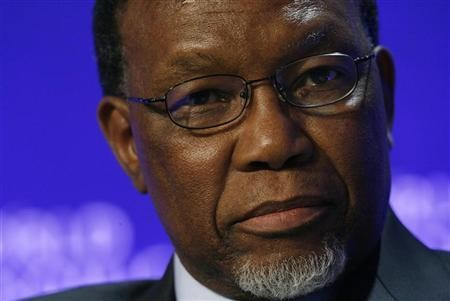South Africa to Replace Iranian Crude Oil Imports with Nigerian Supply

South Africa is looking to source more of its imported oil from Nigeria instead of Iran, an official hinted.
South Africa, which imports a quarter of its crude oil from Iran, is now considering importing the bulk of its crude oil from Nigeria.
The African giant has been under increasing pressure from the United States and its allies to cut its crude oil shipments from Iran, as further US sanction loom over the Islamic republic.
On 1 July, the US government is due to impose sanctions on the banking sector of countries that do not significantly reduce their crude oil imports from Iran.
Washington has set a deadline of 28 June for countries to significantly reduce their oil imports from Iran.
South African deputy president Kgalema Motlanthe has now hinted the African giant is looking for alternative suppliers and would look to import crude oil from Nigeria.
"We would guarantee to our Nigerian brothers demand for their liquid fuels, because we don't want to source our fuel in areas that are likely to be unstable," Motlanthe said during a briefing with Nigerian vice president Namadi Sambo in Cape Town.
"We are quite confident that Nigeria will become one of South Africa's trusted suppliers of liquid fuel."
South Africa took 615,834 tonnes of Nigerian crude oil in March, which represents a fourfold increase on the amount it imported during the same period in 2011, figures from the Revenue Service showed.
Although the country appeared to be bowing to US pressure to find alternative sources for its crude oil imports and imported none from Iran in January, in February 417,000 tonnes of crude oil were brought in from Iran, Reuters reported.
Motlantje's comments came a few days after South African energy minister Dipuo Peters said the cabinet was exploring a range of options and would clarify its response on Iran by the end of the month.
Peters said that local refineries rely on Iranian crude and that changing suppliers would not only affect them, but would also have an "impact on the total value chain" and that it was important to do what was in South Africa's best interests.
Tseliso Maqubela, the energy department's deputy director-general, said earlier this month that South Africa was talking to the US and EU on a "daily basis" and was "confident" a deal could be reached to avoid US sanctions.
© Copyright IBTimes 2025. All rights reserved.



















